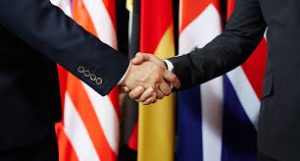Italy approves Security Bill amid international criticism

Meloni government enacts sweeping security law despite warnings it could criminalise civil disobedience and erode human rights protections.
taly’s controversial Security Decree has officially become law, despite months of criticism from European institutions and UN bodies warning it could erode democratic protections and violate international human rights standards.
The Italian Senate gave final approval on Wednesday, following a tense session marked by opposition protests, namely in view of the criminalisation of passive resistance, one of the bill’s most contentious elements.
Actions previously considered non-violent – such as refusing to eat or remaining seated during a prison riot – may now be punishable by law. The decree also criminalises certain acts of civil disobedience, such as blocking roads or railways, with penalties now including up to one month in prison and €300 fines for individuals, or up to six years for groups.
Several senators staged a sit-in in front of the government benches, shouting “shame, shame” as the bill was passed.
The law introduces a broad package of measures aimed at strengthening public security, protecting law enforcement personnel, and cracking down on terrorism, organized crime, illegal occupation of property, and public disorder.
Prime Minister Giorgia Meloni hailed the Senate vote as “a decisive step” to protect citizens and those in uniform. “With the final approval of the Security Decree in the Senate, the government strengthens the protection of citizens, the most vulnerable, and our law enforcement personnel,” she wrote on social media.
International observers have voiced strong concerns. UN Special Rapporteurs, the OSCE’s Office for Democratic Institutions and Human Rights, and the Council of Europe’s Commissioner for Human Rights all warned that the measures could violate international human rights law, undermine the fundamental tenets of criminal justice and the rule of law, and disproportionately target groups such as migrants, racial minorities, and prisoners.





